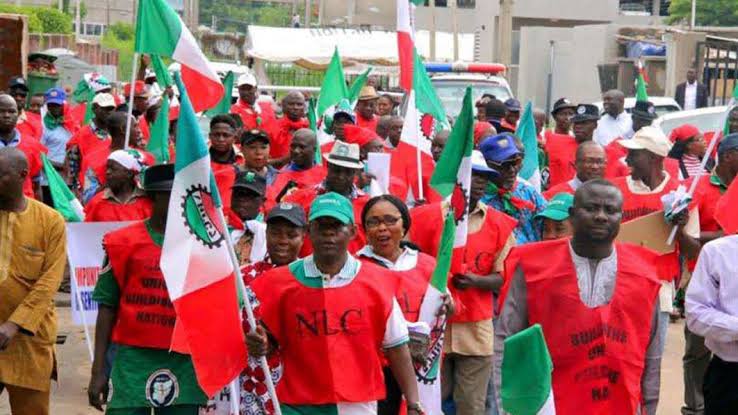The NLC embarked on a two-day strike after rejecting the Federal Government’s proposal of N60,000 as the new minimum wage.
It seems Nigerians may have to brace up for another nationwide strike organized by the National Labour Congress (NLC), as governors lament that the N60,000 minimum wage for workers is too high and unsustainable for them.
The Nigerian Governors’ Forum (NGF), have stressed that many state government would spend the entirety of their allocated budgets to pay salaries while there would be nothing left for developmental projects if the proposal is implemented.
This was disclosed in a statement on Friday by the Director of Media and Public Affairs (NGF), Hajiya Halimah Salihu Ahmed.
Recall that the NLC and the Trade Union Congress (TUC) embarked on an industrial strike on Monday, June 3, 2024, after rejecting the government’s proposal of N60,000 as the minimum wage.
However, the strike was suspended on the following day, after the labour congress accepted President Bola Ahmed Tinubu’s commitment to review the offer within a week deadline.
Meanwhile, the governors’ have argued that the Federal Government’s proposal is unrealistic and states would be forced to borrow to pay workers’ salary if implemented.
The statement reads in part, “The Nigeria Governors’ Forum (NGF) is in agreement that a new minimum wage is due. The Forum also sympathises with labour unions in their push for higher wages.
“However, the Forum urges all parties to consider the fact that the minimum wage negotiations also involve consequential adjustments across all cadres, including pensioners.
“The NGF cautions parties in this important discussion to look beyond just signing a document for the sake of it; any agreement to be signed should be sustainable and realistic.
“All things considered, the NGF holds that the N60,000 minimum wage proposal is not sustainable and can not fly. It will simply mean that many states will spend all their FAAC allocations on just paying salaries with nothing left for development purposes.
“In fact, a few states will end up borrowing to pay workers every month. We do not think this will be in the collective interest of the country, including workers.
“We appeal that all parties involved, especially the labour unions, consider all the socioeconomic variables and settle for an agreement that is sustainable, durable, and fair to all other segments of the society who have a legitimate claim to public resources.”
24/7 UPDATES ON OUR WHATSAPP TV, JOIN NOW
Follow Us on Facebook – @2709Updates; Instagram – @2709Updates; X – @2709Updates;
Discover more from 2709 Updates
Subscribe to get the latest posts sent to your email.



